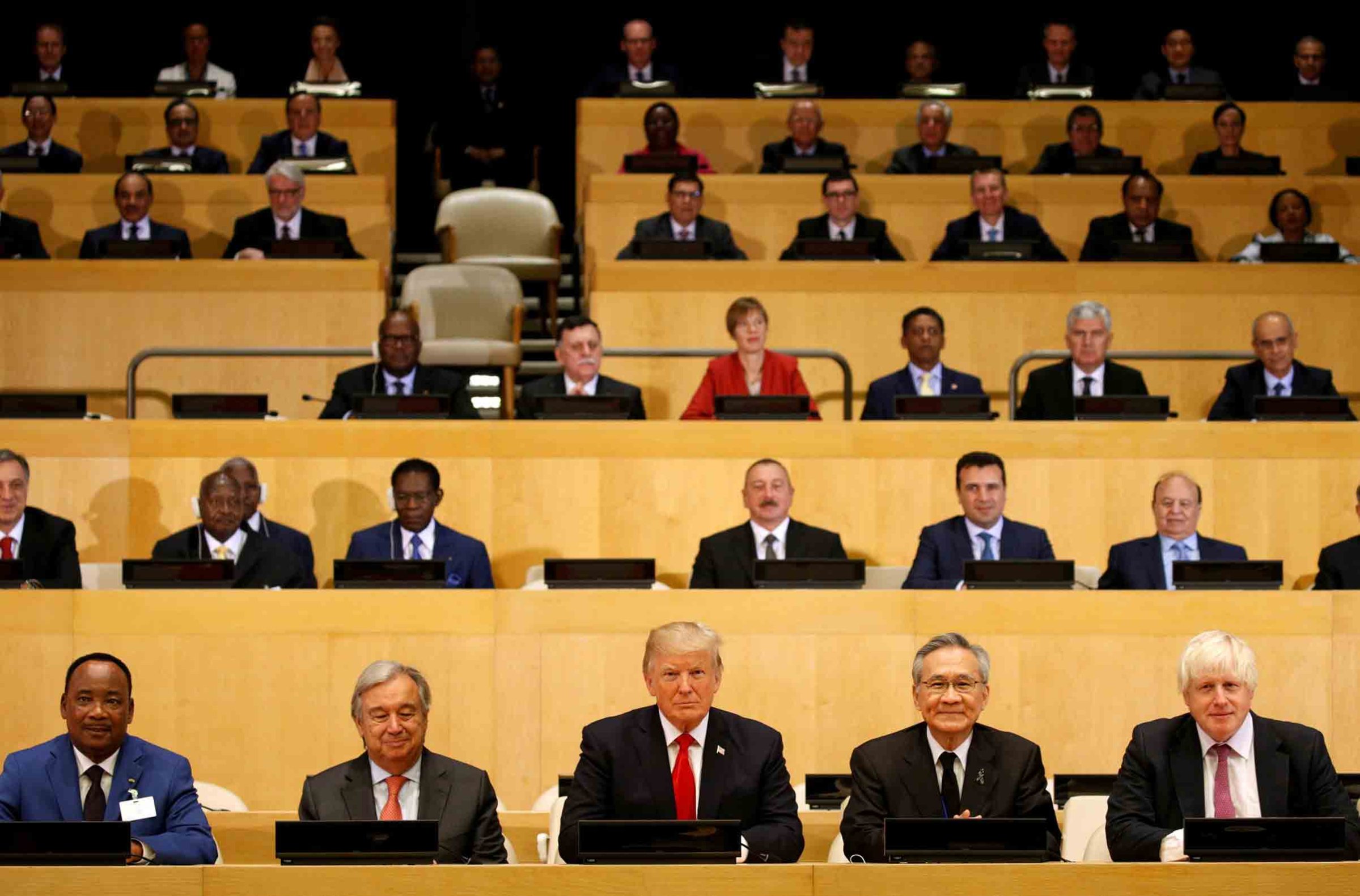
The shock value of President Donald Trump’s first speech to the U.N., on Sept. 19, derived, predictably, from its flights of rhetoric–most notably his threat to “totally destroy” North Korea. But the idea on which the speech was based was far more conventional: sovereignty. Trump referred to it 20 times in 42 minutes, and six of those references were as part of a trio that he called the “pillars of peace”: sovereignty, security and prosperity.
It is a list of priorities that often comes up during the annual General Assembly, though in recent years usually from lapsed democracies, rogue states or authoritarian regimes. For 400 years, the international order has been based on the idea that sovereignty allows for a balance of power between nation states. But after two world wars, America sponsored the United Nations as a forum for more diplomatic confrontation, as well as tackling transnational threats that individual countries alone cannot manage, like humanitarian crises, terrorism or international aggression. Usually it has been the U.S. that has pushed international norms on states like Russia, China, Iran or North Korea, while the leaders of these countries have cited sovereignty in their defense.
Which made Trump’s speech something of a contradiction. Sovereignty, he suggested, defines the way his Administration sees the world and the U.S. role within it and he invited the other countries to adopt the same approach. “As President of the United States,” he said, “I will always put America first, just like you, as the leaders of your countries, will always and should always put your countries first.”
The performance received a mix of responses from capitals around the world. It won applause from hawkish leaders like Prime Minister Benjamin Netanyahu of Israel. But many European statesmen expressed alarm over Trump’s disregard for the idea of shared responsibility in dealing with the world’s most pressing problems. “No mention of rules,” said Carl Bildt, the former Prime Minister of Sweden, in a tweet. “No concept of global order.”
The speech was indeed notable for what Trump declined to address. He only once referred to the concept of universal human rights, which sits at the core of the U.N. charter and is among the reasons for its existence. Even as Hurricane Maria became the third major storm to devastate the Caribbean in as many weeks, Trump did not bring up international relief efforts or the impact of climate change, which many scientists blame for extreme weather events around the world. He also chose not to mention the ongoing crisis in Myanmar, where the military has subjected the Rohingya minority to what the U.N. has called a “textbook example of ethnic cleansing.”
While he was critical of smaller states that the U.S. has accused of violating international norms, like Iran, Venezuela and other representatives of what Trump called the “wicked few,” he avoided direct criticism of Russia, even as fresh evidence emerges of its attempts to influence the 2016 U.S. elections, using social media and other more nefarious digital tactics. He thanked Moscow for allowing a round of sanctions against North Korea in mid-September, ignoring the fact that Russia and China insisted on watering down those sanctions before supporting them in the U.N. Security Council.
In that sense, Trump’s speech was in line with the sovereignty-embracing realist approach adopted by some of his predecessors. But the worldview he articulated contained none of the larger ambitions–no encouragement of democracy, for instance–by which America has defined itself on the world stage for a century. “We do not expect diverse countries to share the same cultures, traditions or even systems of government,” the President said.
How Trump squares his stated brand of realism with, for instance, punishing Syria for gassing schoolchildren, remains far from clear. Sovereignty, in his case, is hard to distinguish from whatever course of action seems right at the moment.
More Must-Reads from TIME
- Inside Elon Musk’s War on Washington
- Meet the 2025 Women of the Year
- The Harsh Truth About Disability Inclusion
- Why Do More Young Adults Have Cancer?
- Colman Domingo Leads With Radical Love
- How to Get Better at Doing Things Alone
- Cecily Strong on Goober the Clown
- Column: The Rise of America’s Broligarchy
Contact us at letters@time.com